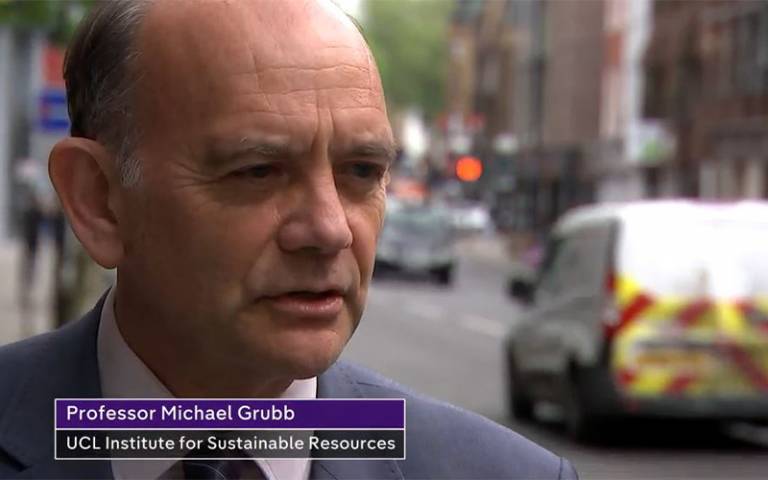Prof. Michael Grubb comments on the CCC report in an interview with Channel 4 News
3 May 2019
What do Climate Scientists think of the new CCC report? ISR Deputy Director Professor Michael Grubb is interviewed by Channel 4 News to give some insights.

After the release of the greatly anticipated Comittee on Climate Change report yesterday, Professor Michael Grubb has spoken to Channel 4 News about the impact of the report and what it means for the UK.
In an interview yesterday Professor Grubb said:
“This report is a big deal, the government specifically asked for advice on ‘is it possible technically and economically to get to net-zero’ and this report unequivocally says yes it is. Which is not something anyone could have really said ten years ago.”““This report is a big deal, the government specifically asked for advice on ‘is it possible technically and economically to get to net-zero’ and this report unequivocally says yes it is. Which is not something anyone could have really said ten years ago.”
The CCC’s report, which was requested by the UK, Scottish and Welsh Governments in light of the Paris Agreement and the IPCC’s Special Report in 2018 finds that:
- The foundations are in place throughout the UK and the policies required to deliver key pillars of a net-zero economy are already active or in development. These include (but aren’t limited to): a supply of low-carbon electricity, efficient buildings and low-carbon heating
- Policies will have to ramp up significantly for a ‘net-zero’ emissions target to be credible, given that most sectors of the economy will need to cut their emissions to zero by 2050.
- The overall costs of the transition to a net-zero economy are manageable but they must be fairly distributed.
The report shows there are multiple benefits of a transition to a zero-carbon economy, including benefits to people’s health from better air quality, less noise from quieter vehicles, healthier travelling / commuting options through cycling and walking, healthier diets and increased recreational benefits from changes to land use.
The UK could also receive an industrial boost as it leads the way in low-carbon products and services including electric vehicles, finance and engineering, carbon capture and storage and hydrogen technologies with potential benefits for exports, productivity and jobs.
 Close
Close

